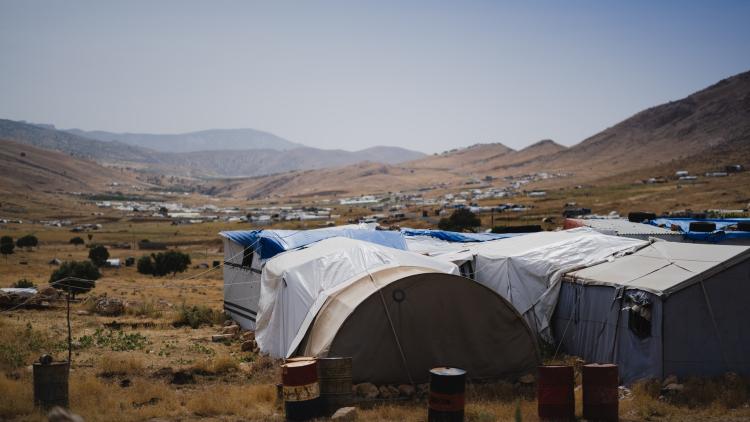How studying online is helping my career in humanitarianism


For National Careers Week, we got in touch with Marte Beate Bordi-Olsen who is currently studying MSc Humanitarian Action (Online) to ask her about her studies and career aspirations.
Can you describe your work at the Norwegian Refugee Council?
My current role with the Norwegian Refugee Council (NRC) is as an Administration and Support Officer within the Field Operations department in NRC’s Head Office in Oslo, Norway. Through an internal organisation-wide strategy and risk reporting mechanism that I coordinate, the aim is to allow for informed management discussions and oversight, and facilitate for internal follow-up processes that enable NRC to be compliant with set procedures and standards. Another key part of this work includes providing support to the management teams of Field Operations and Global Programmes, as well as taking part in and contributing to temporary crisis management teams.
What made you want to study your course at SOAS?
When considering what degree to pursue and where a key criteria for me was the opportunity to study alongside my current work. The possibility of studying an online distance learning programme at the distinguished SOAS, while being able to work and gain further experience both professionally and academically was critical. Having the opportunity to immerse myself in topics that are incredibly relevant to both my professional and academic background, while being surrounded by an international environment of students and professors is a true privilege that comes with being a SOAS student.
What are your current career goals?
Overall, my ambition is to pursue a career in humanitarian action, working on matters which closely relate to peace and security. Whether this is within academia, through a non-governmental organisation or in foreign affairs remains to be known, but I believe it would be truly valuable to work on thematic issues which more closely relate to field operations. Having a strategic governance perspective towards humanitarian affairs is also something I find very interesting and hope to develop further in.
How do you think your online course is helping you to achieve this?
I definitely believe that the MSc programme in Humanitarian Action better equips me with the necessary tools to further develop professionally, in particular, due to the focus and flexibility of the programme and my interests in the academic scope. With an academic curriculum that covers a wide range of interconnected topics, I hope to be better positioned to assess intersectional topics from a holistic perspective in the future. Working while studying truly allows for an elaborate learning process, and is enabling me to see links from the academic sphere to issues I face in my day-to-day work.
What advice would you give to people wanting to get into your field of work?
Within this field of work, there’s many incredibly talented people fighting for the same jobs. I always believe that while the chances are small and sometimes feels like a needle in a haystack, someone has to get the job and why shouldn’t that be you? Getting over the imposter syndrome and actually believing in your own knowledge and skills is very important, and is still a work in progress for me personally. My main advice would be to study extensively, select a wide range of classes that interests you, learn languages, take on internships or volunteer work and engage outside of studies, and just gain one experience after the other.


